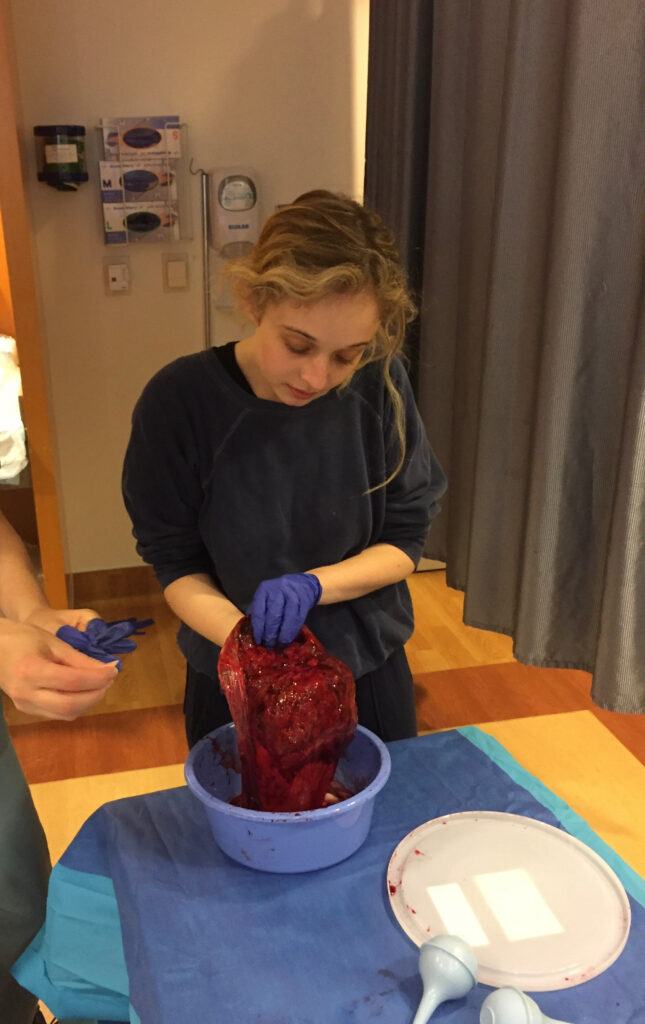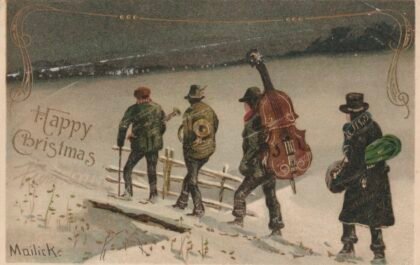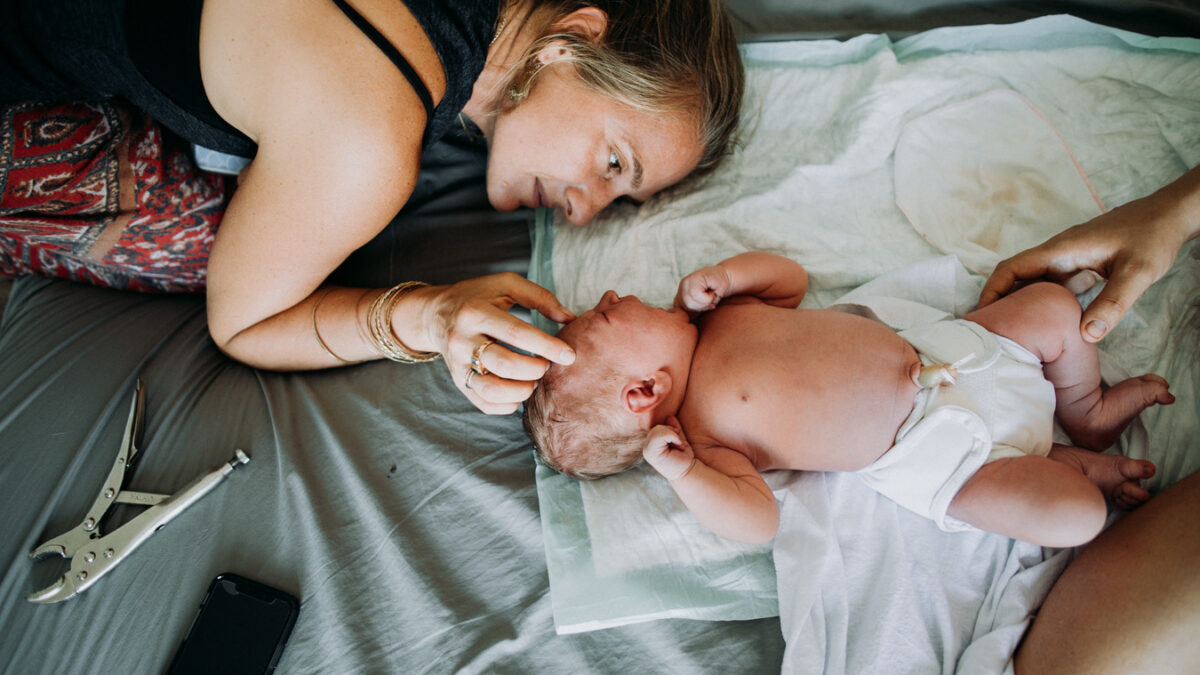I have always been curious about doulas and midwives. When I was nine, a fellow classmate snuck Anita Diamant’s The Red Tent into our private school and it left a lasting impression on me — about women, their roles in society and how different cultures observe the rituals and seasons of womanhood. There is a sort of mysticism to doulas and midwives, an ancient well of knowledge preserved and adapted for centuries.
Today, most births in America happen in hospitals. In most other wealthy and industrialized nations midwives outnumber obstetricians and attend every birth, but that is changing.
For our Rebirth thematic issue, I was curious to explore and share more about who a doula and a midwife are, and what it is they offer to their community. I connected with midwife Aleksandra Evanguelidi and doula Carson Meyers.
Aleksandra shares her thoughts on the history of midwifery and on the future of this ancient vocation.
Tell us a little bit about your introduction into midwifery and some of the history familiar to you.
I was introduced to midwifery through a historical fiction book, The Red Tent by Anita Diamante. I was in my early 20’s and was on a path of deep inquiry and prayer around what the heck I was going to do with my life. It was important to me to find a career path that was meaningful and rewarding. In the book, there were several births had by this family and I found myself crying, literally sobbing while reading them. I was like, “Hey…wait a minute…Is this still happening?” Turns out, midwifery was alive and well but was still not quite accepted by ACOG (The American College of Gynecology) nor were there many options for individuals to get trained. I was lucky in that I had decided to get trained as a doula first while trying on the idea of midwifery as a full time profession.
The early 1900s saw an attempt to ban midwifery in the U.S. At that time about half of births were stewarded by doctors, the other half by midwives.
Do you still feel the lingering apprehension from medical professionals or lack of support from the medical field?
We live within a climate where there are opposing dynamics at play—those who have trained alongside midwives can see the benefits that laboring individuals receive from midwifery care—it is client centered, typically much more effective at preventative care, and mothers report feeling heard and listened to during their perinatal experience and therefore fear what they do not know. Midwives also deal with a low risk population, and we are great at keeping them low risk. However obstetricians at large are unfamiliar with our training and scope of practice. There are bad doctors and there are bad midwives, and unfortunately, both are feared depending on the personal perspective.
Why is it so important to you to continue the legacy of midwifery?
I have trained over 25 midwives in Los Angeles, and I will continue to share the gifts and pearls to clients and students that I have been given throughout the last 20 years working in birth. Why? Because birthing people are worthy to be treated with respect, dignity and honor. We are carrying the future within us and we deserve to be lovingly held while we reach within us for every ounce of strength we have to bring forth these children into the world. Women in labor have been silenced, robbed, abused, brushed off and experimented on (especially women of color) and that must stop.
What are the most meaningful aspects of your job? What is the most challenging?
I love that I get to take my time with clients, that we sit and have tea while exploring the landscape of their prenatal world. We go off on tangents around food and nutrition, relationship challenges and dynamics and explore the fears and traumas that are surfacing. It is as if we are doing personal house-keeping in preparation for this next, massively life altering journey they are on.
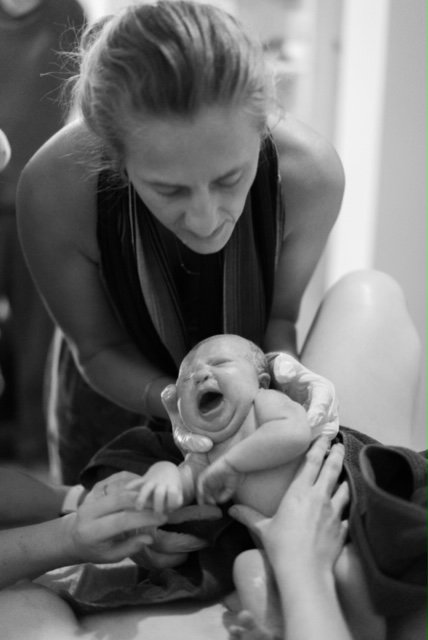
The most challenging conversation is hearing about all the negativity around home birth we still have to work through from our peers, family, and well meaning providers who are indoctrinated in a belief system perpetuated by fear. There is a false perception that hospitals are safer to birth in. While for high risk patients this is indeed true, low risk pregnancies are best managed by low risk providers.
I am also greatly challenged by obstetric violence and the misogyny that is everywhere, at every hospital, even by female doctors. The abuse I witness and hear about from other birth workers makes me hurt inside as if it is happening personally. We simply can not get great care from providers who provide a 7 minute prenatal visit and do not provide full informed consent. We must have time to ask the questions and create a relationship of true trust and intimacy with the person who is supporting us at our most vulnerable moments.
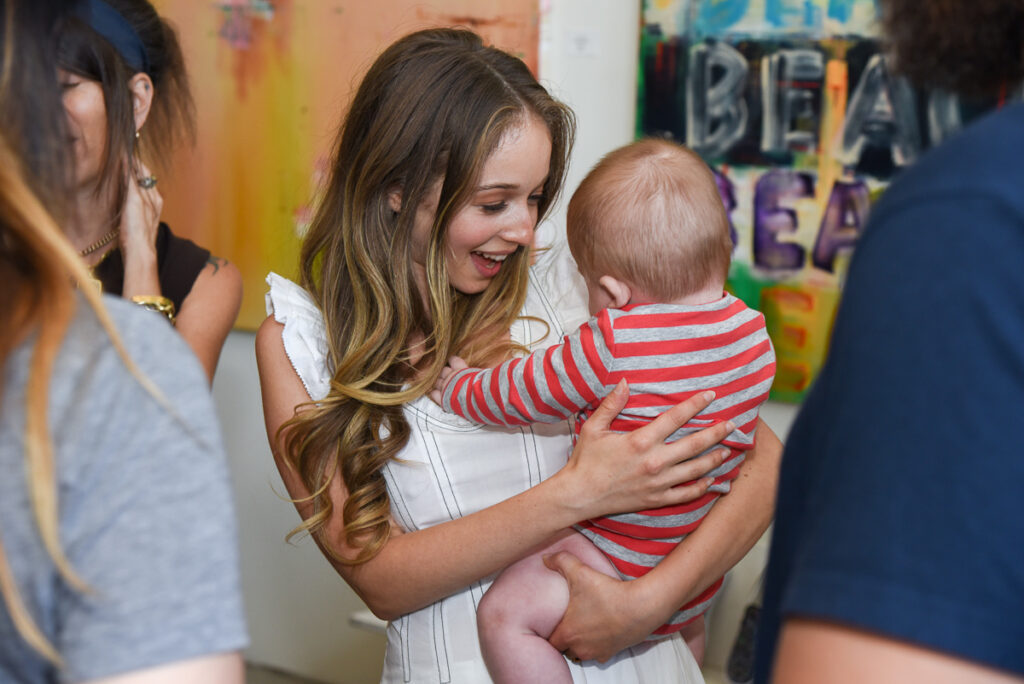
The word ‘doula’ originated in ancient Greece. It translates to ‘women who serve’ and embodies the comforting presence a familiar face offers during pregnancy and labor. Carson Meyer is a full spectrum doula who takes the traditional role of the doula further, offering emotional support and reinforcement during abortions, miscarriages, and hysterectomies.
I met Carson for a socially distanced portrait and asked her the following questions.
Are you comfortable describing and discussing the care offered to women by doulas, other than support during birth? If so, what is a full spectrum doula?
Absolutely! There are doulas who support women through all kinds of reproductive health journeys and life transitions. A full spectrum doula is someone who offers physical and emotional support for women through the spectrum of reproductive health choices and acts as an advocate in a clinical setting.
Every doula brings a unique set of offerings to a birth such as massage, reiki, birth photography and meditation. Perhaps one of the most valuable offerings is advocacy and education. Doulas help to prepare their clients for birth and postpartum by providing them with evidence-based information so they can make empowered & informed choices for themselves and their babies.
Prior to Covid-19, studies showed more American mothers were welcoming doulas in their birth plans. Covid-19 regulations complicate preparing for pregnancy. How has the pandemic affected your work specifically? Have you noticed a silver lining in pregnancy and birth during a pandemic?
When the lockdowns began, most hospitals in Los Angeles and many across the country did not allow doulas and in some cases didn’t even allow partners to attend births. Fortunately, that is changing here in LA, and doulas are finally able to support clients in hospitals again! The feeling of uncertainty and isolation many of my clients experienced in addition to the limitations on labor support inspired me to create Growing Together, a Virtual Circle for mothers- to-be to prepare for birth and postpartum, while creating a community with other mothers giving birth in this unique time. One silver lining I have noticed is an increase in curiosity around doula support and midwifery care.
What is your background in training or certification completed in order to become a practicing doula? How many births have you attended?
I have supported almost 100 births over the past four years! Doula work is non-medical, so technically you don’t need certification. However, I am certified through an organization called DONA and have trained with Bini Birth, Loom, Spinning Babies, Birth Monopoly and am undergoing certification as a pregnancy and postpartum nutrition consultant. There are lots of wonderful doula training programs and mentorship offerings: Mama Glow, Carriage House Birth, Evidence Based Birth and Doula Trainings International to name a few.
Who are your mentors and why are they such a meaningful part of becoming a doula?
I can’t imagine doing this work without a mentor. I feel so fortunate to have crossed paths with Lori Bregman (a fellow Topangan) as I embarked on this work. She took me under her wing and has been by my side from day one. Being able to lean on her and her 20 years of experience has been invaluable for me! Hayley Oakes, Britta Bushnell, Ana Paula Markel, Aleks Evanguelidi and Erica Chidi Cohen have also been guiding lights for me along the way.
What is some advice for mothers who are close to giving birth? What words would you share with women who have decided that motherhood isn’t a part of their life plan?
My advice would be the same to both. There is no one way, there is no right way. Enjoy your journey. Always listen to your heart & intuition above all else.
To connect with Carson follow her Instagram @ccmeyer @candthemoon
To learn more about Aleksandra Evanguelidi, LM, CPM, call 310-493-9134 cell check out her podcast: Under the Hood, or follow her on Instagram: @thevitalwoman
